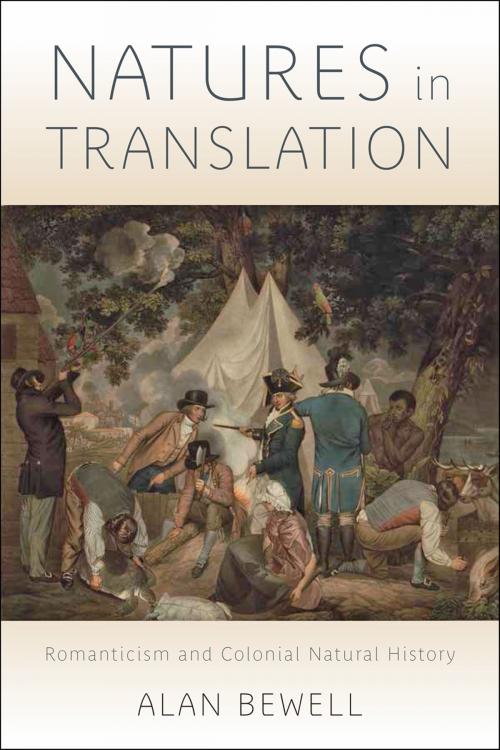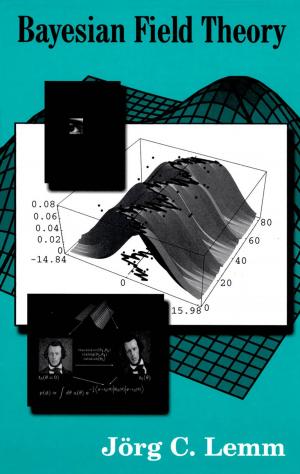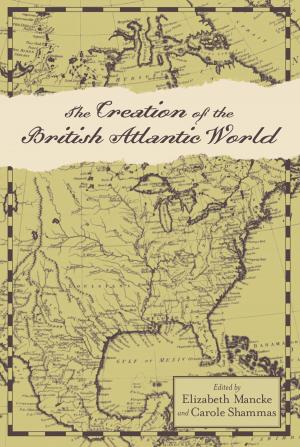Natures in Translation
Romanticism and Colonial Natural History
Fiction & Literature, Literary Theory & Criticism, Theory, Nonfiction, Science & Nature, Science, Other Sciences, History| Author: | Alan Bewell | ISBN: | 9781421420974 |
| Publisher: | Johns Hopkins University Press | Publication: | January 2, 2017 |
| Imprint: | Language: | English |
| Author: | Alan Bewell |
| ISBN: | 9781421420974 |
| Publisher: | Johns Hopkins University Press |
| Publication: | January 2, 2017 |
| Imprint: | |
| Language: | English |
For many critics, Romanticism is synonymous with nature writing, for representations of the natural world appear during this period with a freshness, concreteness, depth, and intensity that have rarely been equaled. Why did nature matter so much to writers of the late eighteenth and early nineteenth centuries? And how did it play such an important role in their understanding of themselves and the world?
In Natures in Translation, Alan Bewell argues that there is no Nature in the singular, only natures that have undergone transformation through time and across space. He examines how writers—as disparate as Erasmus and Charles Darwin, Joseph Banks, Gilbert White, William Bartram, William Wordsworth, John Clare, and Mary Shelley—understood a world in which natures were traveling and resettling the globe like never before. Bewell presents British natural history as a translational activity aimed at globalizing local natures by making them mobile, exchangeable, comparable, and representable.
Bewell explores how colonial writers, in the period leading up to the formulation of evolutionary theory, responded to a world in which new natures were coming into being while others disappeared. For some of these writers, colonial natural history held the promise of ushering in a "cosmopolitan" nature in which every species, through trade and exchange, might become a true "citizen of the world." Others struggled with the question of how to live after the natures they depended upon were gone. Ultimately, Natures in Translation demonstrates that—far from being separate from the dominant concerns of British imperial culture—nature was integrally bound up with the business of empire.
For many critics, Romanticism is synonymous with nature writing, for representations of the natural world appear during this period with a freshness, concreteness, depth, and intensity that have rarely been equaled. Why did nature matter so much to writers of the late eighteenth and early nineteenth centuries? And how did it play such an important role in their understanding of themselves and the world?
In Natures in Translation, Alan Bewell argues that there is no Nature in the singular, only natures that have undergone transformation through time and across space. He examines how writers—as disparate as Erasmus and Charles Darwin, Joseph Banks, Gilbert White, William Bartram, William Wordsworth, John Clare, and Mary Shelley—understood a world in which natures were traveling and resettling the globe like never before. Bewell presents British natural history as a translational activity aimed at globalizing local natures by making them mobile, exchangeable, comparable, and representable.
Bewell explores how colonial writers, in the period leading up to the formulation of evolutionary theory, responded to a world in which new natures were coming into being while others disappeared. For some of these writers, colonial natural history held the promise of ushering in a "cosmopolitan" nature in which every species, through trade and exchange, might become a true "citizen of the world." Others struggled with the question of how to live after the natures they depended upon were gone. Ultimately, Natures in Translation demonstrates that—far from being separate from the dominant concerns of British imperial culture—nature was integrally bound up with the business of empire.















